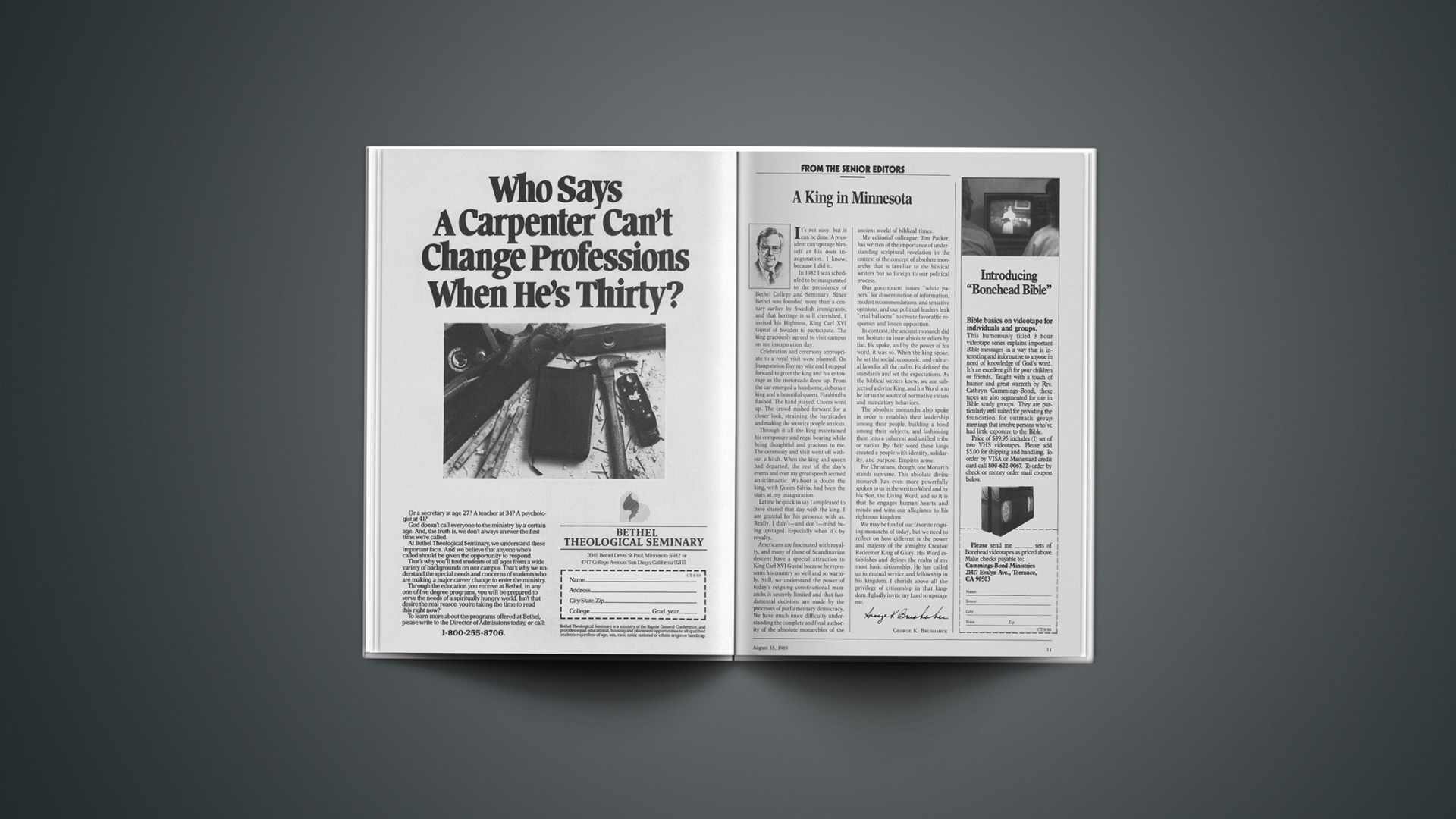Swede Roskam traces his desire for a college education back to a grade B comedy. “When I was a young guy, about in the sixth grade,” recounts Roskam, “I went to a Blondie and Dagwood movie called Blondie Goes to College.” After watching that film, Roskam determined to go to college.
But there were problems. The country was struggling through the tail end of the Great Depression, and few even thought of college. Moreover, remembers Roskam, “My dad was only making 25 or 30 dollars a week.” Roskam managed, with his father’s help, to start college, but he had to quit after one year when money ran out. Convinced he would never go back, Roskam was not exactly a case study of future success.
Then something happened that became, to use a phrase from author Charles Williams, “a terrible good.” Among the many casualties of World War II was a young soldier named George Jenkins. George’s parents, hoping to piece together something positive out of their grief and tragedy, decided to use their son’s military insurance money to help finance someone’s education. Swede Roskam, through a fortuitous sequence of events, became that someone. Roskam finished his education, married his wife of now 37 years, raised five children, and became vice-president for a major Chicago-based corporation.
It is a Dickensian tale that causes Roskam’s usually confident voice to crack and his eyes to water. But his experience left him with a strong belief that he was called to help others as he was helped so many years ago. “In the providence of God,” he says, “I think I was selected 40 years ago to start Educational Assistance Limited.” EAL is a six-year-old, nonprofit business in Wheaton, Illinois, that helps hundreds of youth get a college education.
As EAL’s founder and president, Roskam is something of a corporate Santa Claus, giving needy students gifts of education and career opportunities. With his flourishing white beard, husky frame, and ruddy complexion, this 59-year-old grandfather of three seems comfortable with his Saint Nick image. Though Roskam is in the business of making dreams come true, this is no fairy-tale operation.
Educational Assistance Limited is, in fact, working under a clearly thought-out plan of action: EAL approaches major corporations, such as Amoco, Dow Chemical, and Monsanto, and asks them to donate excess inventory—items they have in stock but no longer use. Working from a list of participating colleges, many of which are Christian, EAL attempts to match donated items with an institution’s need. For instance, a school may plan to purchase new computers, and a corporation has just given EAL several models it no longer uses. EAL will then approach the school with a deal: Take these computers in exchange for “scholarship credits.” The credits, which are worth the amount of the donated goods, help pay for the education of young people from financially depressed homes and neighborhoods. “In the long run,” says Roskam, “everyone wins. Corporations rid themselves of space-taking excess inventory, and receive tax breaks for doing so; schools acquire items they would eventually purchase anyway; and underprivileged students are given a chance for a higher education.”










